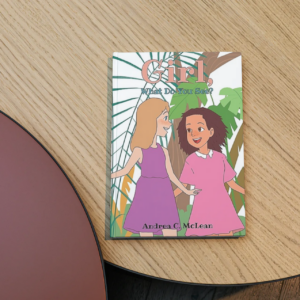Life is like a garden, filled with the beauty of blooming flowers, lush greenery, and vibrant colors. However, it’s also inevitable that dead leaves, withered branches, and weeds will find their way into this garden. Just as a diligent gardener tends to his plants by pruning away the dead parts, we must learn to do the same in our lives. Trimming away dead things is not just about decluttering or simplifying; it’s a profound act of self-care and personal growth. This blog post explores the significance of letting go and its positive impact on our lives.
Recognizing the Dead Things
Before we can start pruning the dead aspects of our lives, we must first learn to recognize them. Dead things can manifest in various forms, from toxic relationships and unfulfilling jobs to bad habits and outdated beliefs. These dead things often drain our energy, hinder our progress, and hold us back from reaching our full potential. To identify them, take a step back and reflect on what is no longer serving you, causing distress, or inhibiting your growth.
The Emotional Toll of Clinging to Dead Things
Clinging to dead things can have a profound emotional toll on us. It can lead to stress, anxiety, and a sense of stagnation. Just as a plant cannot flourish if dead branches weigh it down, we cannot thrive if we are burdened by dead weight. These emotional burdens can prevent us from pursuing our dreams, maintaining healthy relationships, and experiencing genuine happiness.
The Art of Letting Go
Letting go is an art; like any art form, it takes practice and patience. It involves acknowledging that the dead things in our lives are no longer contributing positively and are hindering our growth. Here are some steps to help you master the art of letting go:
- Self-Reflection: Reflect on what is truly important to you and what aligns with your values and goals.
- Acceptance: Recognize that letting go is a natural part of life. Just as seasons change, so do our priorities and circumstances.
- Release: Begin releasing dead things from your life, which may involve ending toxic relationships, quitting a job that no longer fulfills you, or breaking free from harmful habits.
- Seek Support: Be bold and seek support from friends, family, or a therapist during this process. They can provide guidance, encouragement, and a listening ear.
- Cultivate Positivity: As you trim away dead things, fill the void with positivity. Cultivate new relationships, explore new passions, and embrace personal growth opportunities.
The Transformational Power of Letting Go
Letting go of dead things can be a truly transformational experience. Just as a pruned plant can redirect its energy toward healthy growth, we can shift our focus toward what truly matters. Here are some of the benefits you can expect to experience:
- Renewed Energy: Releasing dead weight will free up your emotional and mental energy, allowing you to invest in activities and relationships that bring joy and fulfillment.
- Clarity: Letting go can clarify your life’s direction and purpose. It allows you to see the path ahead more clearly without distractions.
- Personal Growth: Trimming away dead things is a powerful catalyst for personal growth. It pushes you out of your comfort zone and encourages you to explore new horizons.
- Happiness and Well-being: As you shed the negative influences and stressors, you’ll find that your overall happiness and well-being improve.
- Stronger Relationships: Letting go of toxic relationships opens the door for healthier, more meaningful connections with others.
Conclusion
Just as a gardener prunes away dead branches to ensure a flourishing garden, we must trim away dead things in our lives to thrive and grow. Letting go is not a sign of weakness but a testament to our strength and resilience. It’s a conscious choice to prioritize our well-being and happiness. So, why don’t you take a moment to assess your life’s garden, identify the dead things, and trim them away? Your future self will thank you for it as you bloom and grow in the light of your potential.






